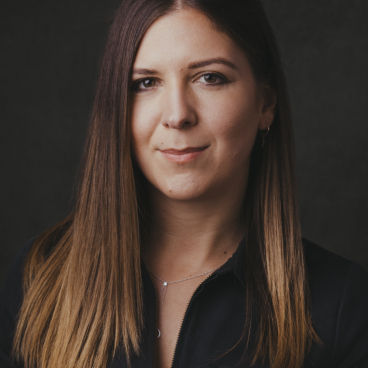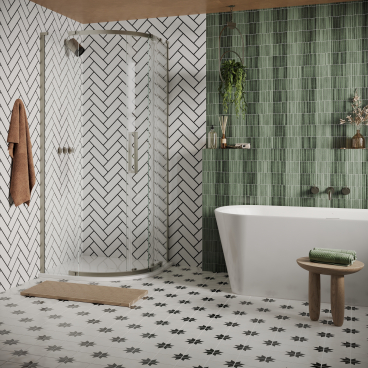How it’s made: Factory tour at Forbo, Telford, to celebrate 100-years of Nuway.
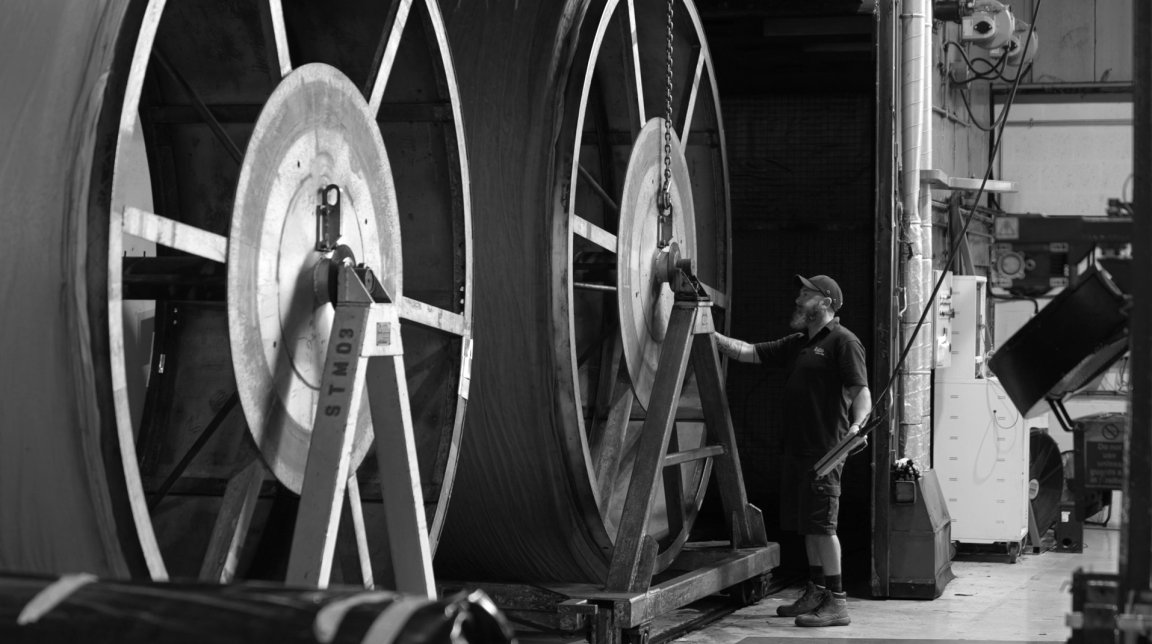
Forbo Flooring Systems has sustainability at its heart. And so, it was no surprise to find when visiting its factory in Telford, that this, executed through quality and acute attention to detail, drives its entire manufacturing process.
Telford is the home of Nuway – Forbo’s range of entrance matting. When you think of a flooring product like this, durability, reliability, and safety may spring to mind. But what you might not have considered is an element of bespoke. For 100-years, Forbo has ensured customisation for each and every individual project order, crafting countless warm welcomes for workplaces, hospitality venues, schools, hospitals, and every building in between.
On visiting the Telford site, which employs 21 skilled team members, this rich history was truly brought to life through artefacts on display - curated by Jason Holmes – head of design for textiles, there.
These ranged from the first board meeting minutes in 1924, to a catalogue of all the placed advertisements for Nuway. And the fact its manufacturing still utilises machinery from when the plant first opened its doors in the 1960s, including some that was initially found in a field and repurposed – is reflective of the type of trailblazing, positive activity for which Forbo has built up an unwavering reputation.
This notion of repurposing even extends to would-be waste rubber offcuts - given a new lease of life on local bowling greens. At every stage of ‘making’, efficiency and creativity are paired as part of the brand’s desire to operate in a circular manner.
Having been inspired by our recent trip to Telford, we wanted to share a glimpse behind-the-scenes with you too…
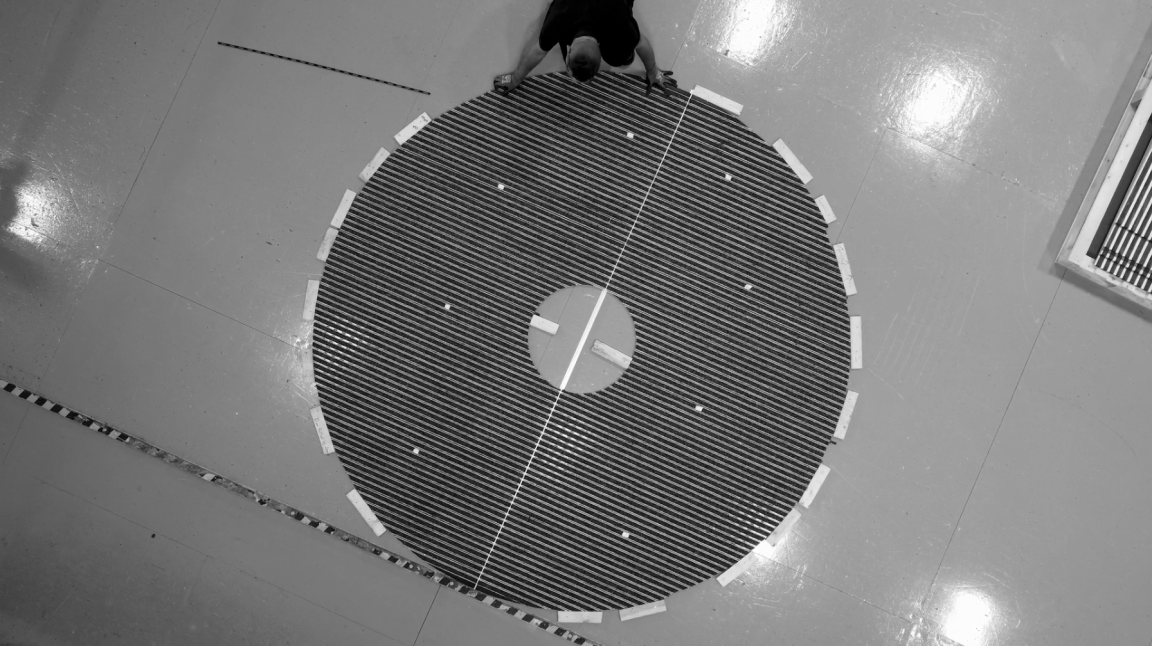
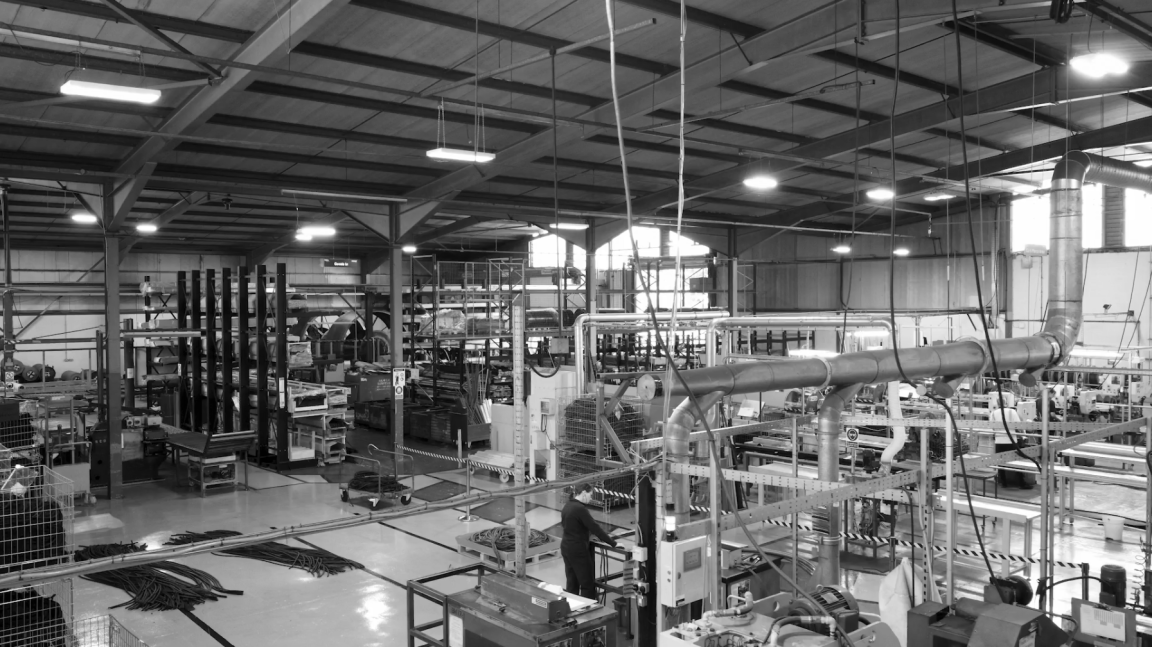
Materiality
Nuway began life in 1926 as matting made from repurposed car tyres. But as the tyre industry changed, so too did Nuway’s material source and production methods. When tyres from the UK became unusable in this instance, they were sought out from other parts of the world, before a decision was made for the Telford factory to manufacture its own rubber solution in-house.
The rubber comes through in thin strips, is layered, then placed in an oven to vulcanise and meld all of the layers together. That’s then taken out and rolled up. Each roll weighs 150kilos. So a combination of hoist and forklift trucks are mobilised to move them around.
In addition to rubber, bamboo can also be used in this product. Though the manufacturing process is slightly different, with holes drilled instead of punched due to the potential for snapping.
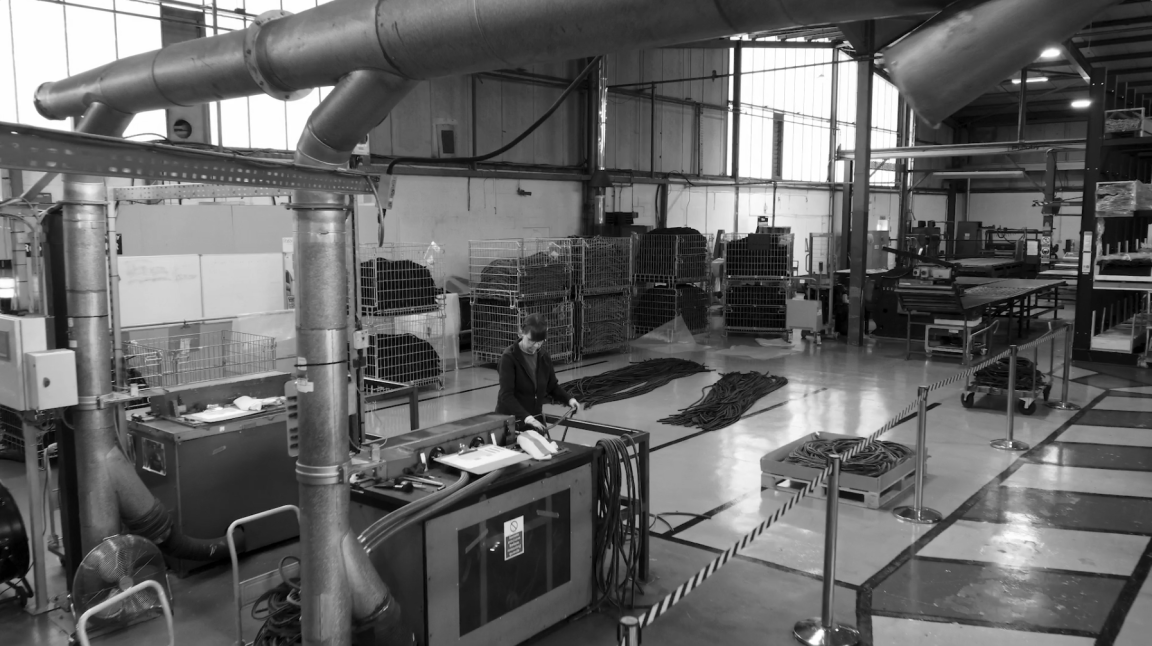
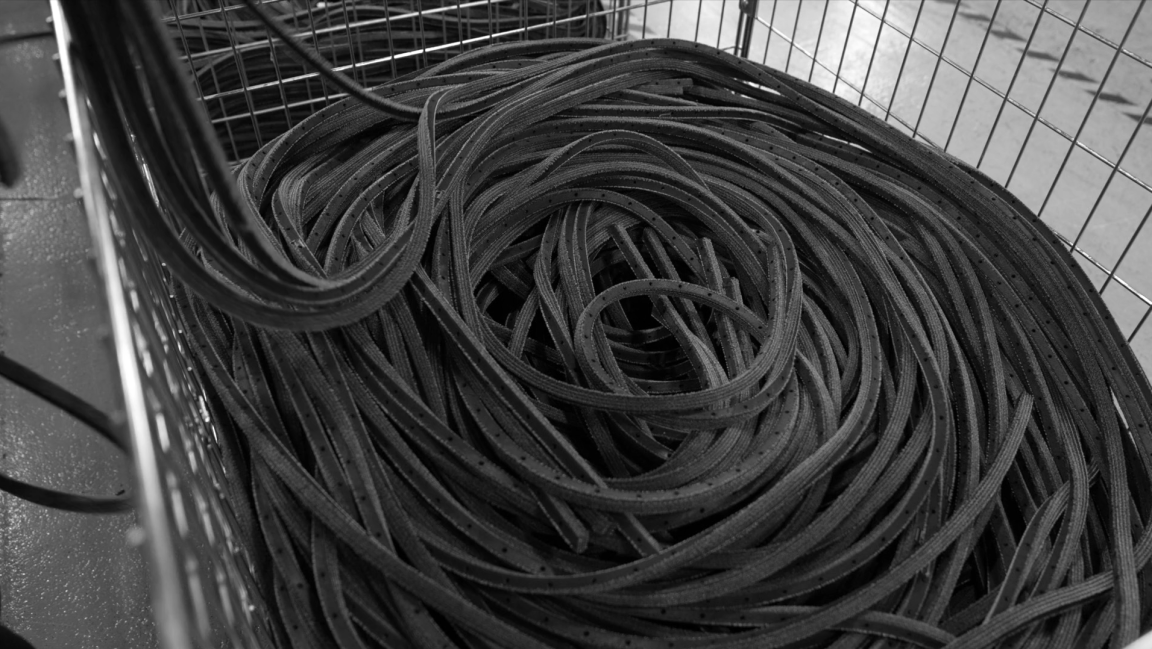
Machinery
On this topic of sustainability, and as mentioned at the top of the piece, where Forbo is able, it repurposes. This extends through to its machinery. 40-years ago, one particular piece of machinery was sat derelict in a farmer’s field. Forbo saw it, and thought, “we can use that”. So it’s new life became cutting sheet rubber into strips – a part of the process it’s been fulfilling ever since. And this is just one example of many.
Once the strips have been cut to 9.5 metres long, they are laid on the floor to be buffed and pierced. This is where the wicker effect is created, so when installed in the entrance to a building, moisture can be drawn from the top of the mat to the bottom and passed out through the footwell – avoiding any water damage to the flooring underneath.
Finishing
The rubber strips in black and grey – or bamboo - are woven together with aluminium wire in silver, black, sand, bronze, or gold. Accuracy is paramount at this point, particularly in terms of orientation and measurement.
For a standard finish the rubber runs flush with the aluminium. And for those seeking a more enhanced solution, the open profile finish features cut outs to capture fine dust and dirt.
With a focus on durability and longevity, the Nuway product is dual sided. So, after it’s been in use for a number of years it can be flipped to reveal the fresh surface underneath. Quite literally, doubling the lifespan.
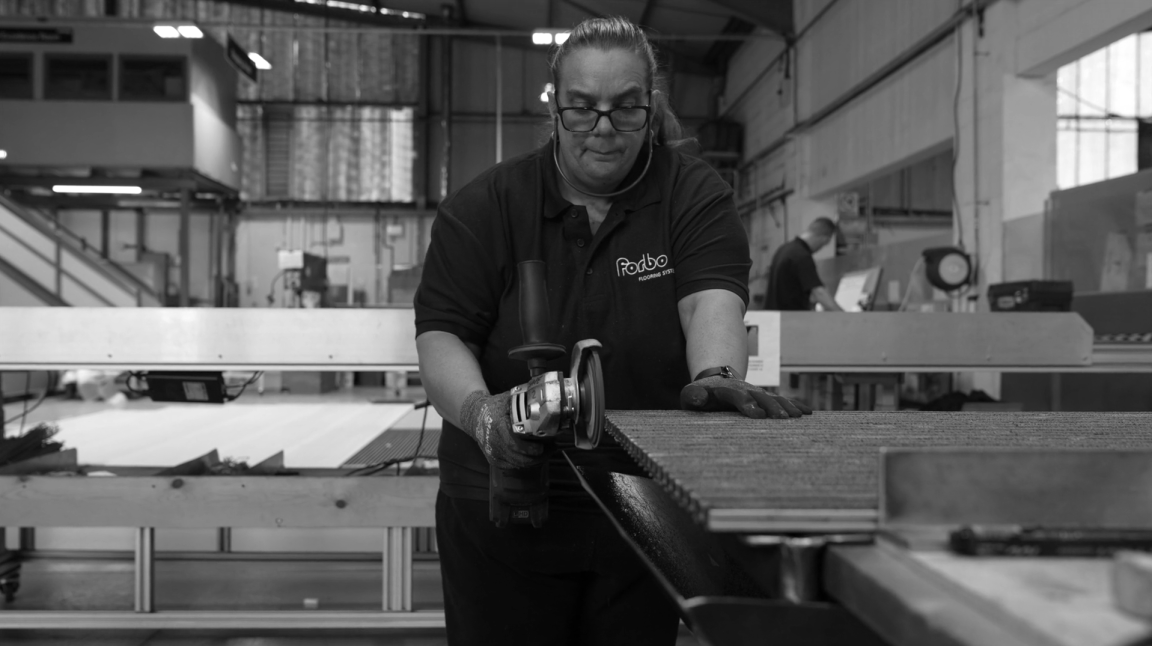
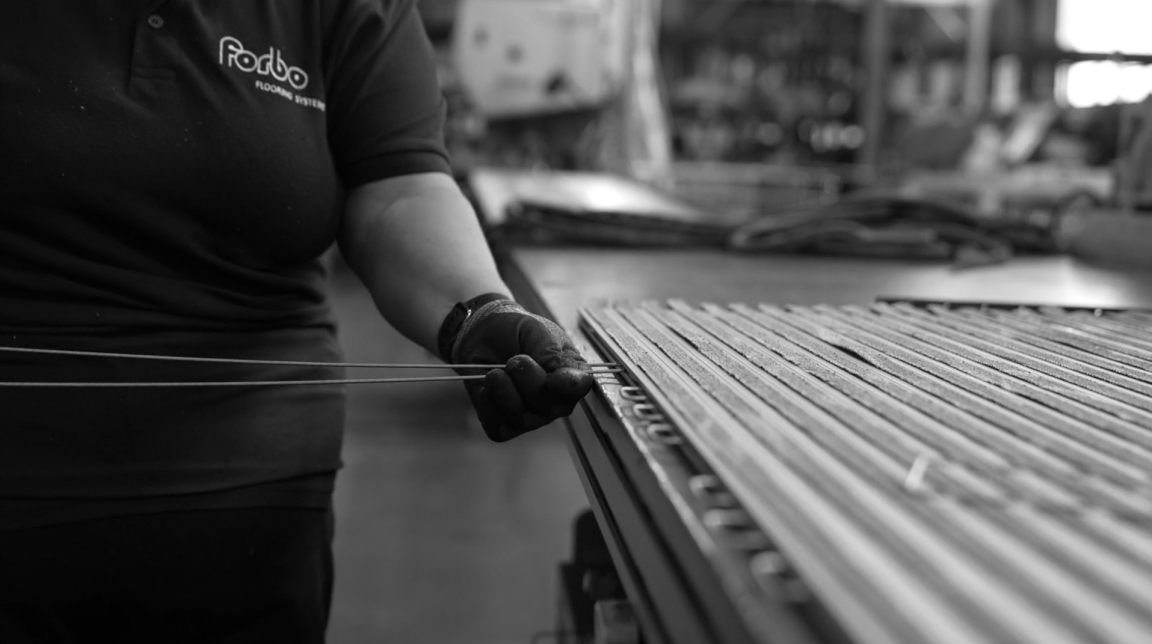
Quality control
Every mat is made-to-order bespoke – so while there are certain options to choose from – ultimately, the end result is entirely unique. And while no stock is held on-site, the turnaround time is just four-days. Each product is checked by a person before it’s packed and shipped (with photos captured as documentation). The accuracy rate is just shy of 100% - with an emphasis on “getting it right first time”.
At Telford, there’s also a dedicated training school for fitters of this specific entrance matting product, with expertise available to customers and clients. This is the first and only of its kind in the flooring sector. Though it’s not exclusive to Forbo fitters – could-be competitors’ fitters are also trained there too.
This dedication to quality is a clear theme that runs throughout the entire operations at Telford. And having experienced it first-hand, it’s certainly made us consider what’s beneath our feet in a bit more depth.
A huge thanks to all the Forbo Nuway team in Telford for taking the time to show us around the factory. Would you like to see the factory for yourself? Book a tour. You can also discover more of Forbo’s products by visiting Material Source Studio Manchester & Glasgow – where it is a founding partner.



